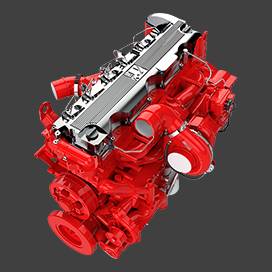Oct . 01, 2024 14:34 Back to list
Steps to Change Rear Brake Drums and Shoes for Better Vehicle Performance
How to Replace Rear Brake Drums and Shoes
When it comes to vehicle maintenance, one essential task that often gets overlooked is replacing rear brake drums and shoes. Regular checks and timely replacements ensure your vehicle remains safe and performs optimally. This guide will walk you through the step-by-step process of replacing rear brake drums and shoes.
Tools and Materials Needed
Before you begin, make sure you have the following tools at hand
- Socket wrench set - Screwdrivers (flathead and Phillips) - Brake cleaner - New brake shoes - New brake drums - Brake grease - Jack and jack stands - Lug wrench - Safety goggles and gloves
Step 1 Prepare Your Vehicle
First and foremost, ensure your vehicle is parked on a level surface. Make sure the parking brake is engaged to prevent any accidental movement. Use a lug wrench to loosen the lug nuts on the rear wheels slightly but do not remove them completely. Next, use a jack to lift the rear of the vehicle and secure it with jack stands for safety.
Step 2 Remove the Rear Wheels
Once the vehicle is secure, remove the lug nuts completely and take off the rear wheels. This will grant you access to the brake assembly.
Step 3 Disassemble the Brake Components
Look for the brake drum’s retaining screws or clips, which may differ based on your vehicle model. Remove these using a screwdriver or socket wrench. Gently pull off the brake drum; if it is stuck, you may need to tap it lightly with a rubber mallet. Be cautious as the drum may be heavier than it appears.
how to replace rear brake drums and shoes

Step 4 Remove the Old Brake Shoes
With the drum removed, inspect the brake assembly. You’ll find the brake shoes attached to the backing plate. Note the arrangement of the springs and other hardware, as you will need to replicate this during reassembly. Remove the springs and disconnect the shoes from the anchor and wheel cylinder. It’s a good idea to take pictures as you work to help with reassembly.
Step 5 Install New Brake Shoes
Once the old shoes are removed, clean the backing plate and surrounding area with brake cleaner. Apply a thin layer of brake grease to the contact points. Install the new brake shoes, attaching them in the same manner as the old ones were fitted, making sure that the springs are secured properly.
Step 6 Replace the Brake Drum
After the new shoes are in place, carefully reattach the brake drum. Ensure that it fits snugly over the pads. If you notice any vibrations or the drum doesn’t fit correctly, double-check the installation of the shoes and adjust as necessary.
Step 7 Reassemble and Test
Once the drum is in place, replace any retaining screws and reattach the wheel. Tighten the lug nuts in a star pattern to ensure even tightness. Lower the vehicle and torque the lug nuts to the manufacturer’s specifications.
Finally, before going for a drive, pump the brake pedal a few times to seat the shoes against the drum. This is crucial for ensuring proper braking performance.
Conclusion
Replacing rear brake drums and shoes is a manageable project for those willing to take the time and care necessary. By following these steps and paying attention to detail, you can enhance your vehicle's safety and performance, potentially saving on repair costs in the long run. Always remember to consult your vehicle’s manual for specific instructions related to your make and model. Safe driving!
-
Brake Drum Liza Durable & High-Performance Brake Solutions
NewsMay.29,2025
-
Brake Drum Liza Durable Drum Brake & Shoe Replacement Solutions
NewsMay.29,2025
-
Brake Drum Liza High-Quality Drum Brake & Shoe Solutions
NewsMay.29,2025
-
Brake Drum Liza Durable Drum Brake & Shoe Solutions for Vehicles
NewsMay.29,2025
-
Brake Drum Liza Premium Drum Brake Components & Shoes
NewsMay.29,2025
-
Brake Drum Man Durable Drum Brake Drums & Shoes Supplier
NewsMay.28,2025
